
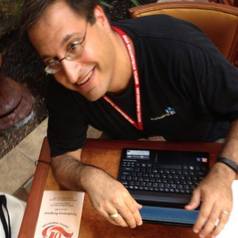
Matthew Kirschenbaum
Professor of English, University of Maryland
Matthew G. Kirschenbaum is Professor in the Department of English at the University of Maryland and Director of the Graduate Certificate in Digital Studies. He is also an affiliated faculty member with the College of Information Studies at Maryland, and a member of the teaching faculty at the University of Virginia’s Rare Book School. He served previously as an Associate Director of the Maryland Institute for Technology in the Humanities (MITH) for over a decade. He is a 2011 Guggenheim Fellow.
His most recent book, Track Changes: A Literary History of Word Processing, was published by Harvard University Press’s Belknap Press in 2016; with Pat Harrigan, he also co-edited the collection Zones of Control: Perspectives on Wargaming from the MIT Press (2016). His public-facing writing has appeared in the Chronicle of Higher Education, Slate, LA Review of Books, Paris Review Daily, War on the Rocks, and The Conversation. His research has been covered by the New York Times, The Atlantic, The New Republic, The Guardian, National Public Radio, Boing Boing, and WIRED, among many other outlets. In 2016 he delivered the A.S.W. Rosenbach Lectures in Bibliography, a written version of which are under contract to the University of Pennsylvania Press as Bitstreams: The Future of Digital Literary Heritage.
Kirschenbaum’s current interests include the history of writing and authorship, textual and bibliographical studies, serious games, and military media and technologies. His first book, Mechanisms: New Media and the Forensic Imagination (MIT Press, 2008) won multiple prizes, including the 16th annual Prize for a First Book from the Modern Language Association. He was also the lead author on the Council on Library and Information Resources report Digital Forensics and Born-Digital Content for Cultural Heritage Collections (2010), recognized with a commendation from the Society of American Archivists. See mkirschenbaum.net or follow him on Twitter as @mkirschenbaum for more.
Less ![]()
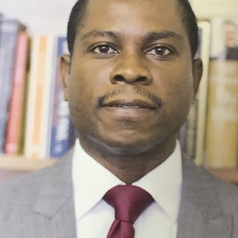
Matthew Kofi Ocran
Appointed as an associate professor of economics in 2012, and a professor of economics in 2014. Joined UWC in April 2015 from NMMU. NRF Rated as an established researcher in 2012 for the 6-year cycle, 2012-2018.
Less ![]()

Matthew Kriner
Director of Strategy, Partnerships and Intelligence at the Center on Terrorism, Extremism, and Counterterrorism, Middlebury Institute of International Studies
Less ![]()

Matthew Lamb
Honorary Research Fellow, School of Historical and Philosophical Inquiry, The University of Queensland., The University of Queensland
Less ![]()
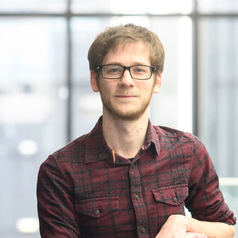
Matthew Leggatt
Senior Lecturer, Department of English and Creative Writing, University of Winchester
Matthew Leggatt is Senior Lecturer in English and American Literature. He is author of the monograph Cultural and Political Nostalgia in the Age of Terror (Routledge, 2018) and editor of the collection Was it Yesterday? Nostalgia in Contemporary Film and Television (SUNY Press, 2022). He has also published a number of journal articles and book chapters and is the editor of the forthcoming collection Wastelands and Wonderlands: Essays on Utopian and Dystopian Film and Literature (SUNY Press, 2025) and Play in Utopian and Dystopian Fiction (Liverpool University Press, 2026). Matthew teaches primarily in the fields of 20th and 21st century culture, specialising in popular American literature, film, and television. He received his PhD from the University of Southampton in 2013 and has experience teaching English as a foreign language and English for Academic Purposes at the University of Southampton before he joined Winchester.
Less ![]()
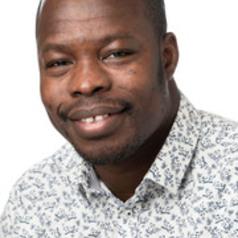
Matthew Mabefam
Lecturer, Development Studies, The University of Melbourne
Matthew Mabefam is a lecturer in development studies at the School of Social and Political Sciences. He completed his PhD in anthropology and development studies at the University of Melbourne.
He also holds an M.Phil. and BA (Hons) degrees, both from the University of Ghana. Matthew's research focuses on the politics of international development, inequality, religion and neoliberalism, political economy, migration and wellbeing. Overall, his research examines mainstream development models and their applicability in developing contexts and highlights some of the emerging tensions. In short, his work contributes to the decolonisation of development epistemes, knowledge and practices. Matthew's regional focus is Africa (Ghana) and African diaspora.
Increasing public engagement with development issues and displaced people's wellbeing is at the core of the global agenda. Matthew is highly engaged in public and scholarly activities through sharing his research outputs in media, seminars, conferences and academic publications. Highlights include his weekly appearances on Africa Media Australia as a panellist.
Matthew is also passionate about community development. As a result, he initiates and participates in community-led activities, engages in consultancies, mobilises resources and provides mentoring opportunities to school children of low socio-economic backgrounds. He has prior working experience with grassroots NGOs in Ghana.
Less ![]()
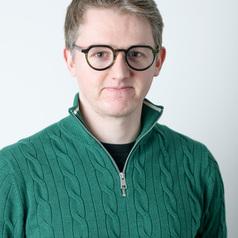
Matthew Matthew Wynn
Lecturer in Digital Health and Society, School of Health & Society, University of Salford
Matthew Wynn is a lecturer in Digital Health and Society at the University of Salford. With a background in nursing, Matthew specialises in tissue viability and infection control. He has extensive experience working within the UK National Health Service, the British Armed Forces, and has served as an expert witness in civil cases related to nursing care. His clinical experience has given him a deep understanding of wound care and infection control, which are crucial for patient safety and effective healthcare.
Matthew's research focuses on the digitalisation of nursing, particularly how digital tools can improve clinical practices related to wound care and infection control. His work aims to enhance healthcare delivery and patient outcomes through the integration of technology. As an educator, Matthew is dedicated to preparing future healthcare professionals to excel in a digitalised healthcare environment.
Less ![]()

Matthew Mazloff
Researcher, Scripps Institution of Oceanography, University of California, San Diego
Less ![]()
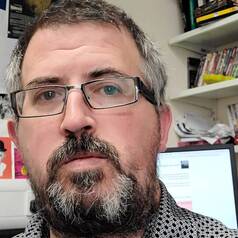
Matthew Melia
Senior Lecturer and Course leader of the Humanities Foundation Degree, Kingston University
I graduated in 2001 at the University of Aberdeen (Joint MA Hons English-Lit / History of Art) and was awarded my PhD from Kingston University ('Architecture and Cruelty in the Writings of Antonin Artaud, Samuel Beckett and Jean Genet') in 2007.
I currently teach across film, media and English Literature and I am the Course leader for the Humanities Foundation degree
My current and ongoing research concentrates on the work of both Stanley Kubrick and Ken Russell. I co-edited The Jaws Book: New Perspectives on the classic Summer Blockbuster (Bloomsbury); Anthony Burgess, Stanley Kubrick and A Clockwork Orange (Palgrave, 2023 ); 'Fifty Years of A Clockwork Orange' (Special edition of Historical Journal of Film Radio and Television) and edited ReFocus: The Films of Ken Russell (EUP, 2023 ). I am currently working on a monograph about Ken Russell's 1986 film Gothic. Forthcoming publications include an edited collection for Bloomsbury, The Jurassic Park Book (2023), a special edition of the journal Cinergie Il Cine e le Altre Arti, 'Franchising Jurassic Park' (2023) .
My research (and teaching) is archive focused and I have a particular research interest in the both study of archives themselves and in the phenomena of the unmade and abandoned project. I am co-convener of the Special Interest Group (SIG) 'Archives and Archival Methods' (British Association of Film, Television and Screen Studies).
I have taught modules on British cinema and cult and transgressive film and literature and am interested in the tension between analogue and digital media as well as dead technology.
Less ![]()

Matthew Miles
Postdoctoral Researcher in Astrophysics, Swinburne University of Technology
I graduated Monash University with a Bachelor of Aerospace Engineering (Honours) and a Bachelor of Science. Following this, I went on to complete a PhD in Astrophysics at Swinburne University of Technology.
Since then, I've been working as a postdoctoral researcher for OzGrav and Swinburne University. My scientific background specialises in pulsar timing array science. This science uses pulsars, regularly rotating neutron stars that hit the Earth with beams of radio waves, as very precise natural clocks. By doing this, we can look for distinct patterns in how space and time are changing across the entire galaxy - in effect creating a cosmic scale gravitational wave detector. The gravitational waves that this kind of detector would be sensitive to are those emitted by inspiralling supermassive black holes, the behemoths of our Universe that reside at the centres of galaxies and are billions of times heavier than our Sun.
Less ![]()

Matthew Noone
Course Director of World Music, University of Limerick
Matthew Noone is an Australian-Irish ex-indie rocker, improviser, composer, artist-scholar and performer of the 25 stringed Indian sarode. After beginning his musical career as a guitarist and drummer in Brisbane in the mid 90s, Matthew fell in love with the sarode during a trip to India in 2003. He has studied North Indian Classical music for two decades with Sougata Roy Chowdhury in Kolkata and with UK based sarodiya, K. Sridhar. He performs Indian classical music across the globe and composes in a diverse range of disciplines ranging from Irish traditional music, free improvisation and contemporary electroacoustic music.
Matthew is also an Irish Research Council scholar and was awarded a PhD for his work exploring the performance of Irish music and completed a postdoctoral fellowship investigating electroacoustic music improvisation. His research interests include cultural hybridity, phenomenology, consciousness and deep ecology. He is the Course Director of the BA in World Music at the Irish World Academy of Music and Dance at the University of Limerick.
Less ![]()


Matthew Nurse
Associate lecturer, Australian National University
PhD (ANU)
Master of Science Communication (ANU)
Master of Communication (Deakin)
Less ![]()

Matthew Olczak
Reader in Economics, Aston University
Dr. Matthew Olczak is a Reader in Economics and currently Head of the Economics, Finance & Entrepreneurship Department at Aston University.
His research is in the areas of industrial organisation and competition policy and sports economics. This has been widely published in international economics and competition law journals. Furthermore, he is a co-author of a book on hub-and-spoke cartels that was published by MIT Press in 2022.
He has taught microeconomics, industrial organisation, competition policy and sports economics and finance. Matthew has a keen interest in using and researching technology, in particular online games, to enhance teaching and learning. He is a Senior Fellow of Advance HE and an Associate of the Economics Network.
Less ![]()
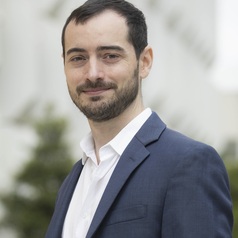
Matthew Pase
Associate Professor of Neurology and Epidemiology, Monash University
Matthew Pase is an Associate Professor (Research) at Monash University and an Associate Professor of Epidemiology at Harvard T.H. Chan School of Public Health, Harvard University. He is a current NHMRC Emerging Leader Fellow (EL2). He leads the Ageing Well Pillar at the Turner Institute for Brain and Mental Health, the Ageing and Neurodegeneration Research Program at the School of Psychological Sciences, and the Epidemiology of Dementia Lab.
He and his team aim to make dementia preventable for future generations by advancing our understanding of risk factors and early biomarkers. His research has contributed to a paradigm shift in thinking whereby managing vascular risk factors is now considered fundamental for preventing dementia. His research has reached a global audience of over 1.5 billion and has impacted current dementia prevention guidelines. In addition, Altmetrics have featured his research in the top 100 most impactful articles of all time out of over 17 million. Matthew leads several local and global initiatives, including the Brain and Cognitive Health (BACH) cohort, and is Co-PI of the NIA-funded Sleep and Dementia Consortium.
Less ![]()

Matthew Patterson
Postdoctoral Research Assistant in in Atmospheric Physics, University of Oxford
I am a postdoctoral research assistant in the climate dynamics and predictability groups. My primary interests are in atmospheric dynamics, prediction on seasonal to decadal timescales and climate change.
My current work concerns the effects of decadal variability of the sub-polar North Atlantic ocean on the mid-latitude atmosphere. This is part of the NERC-funded WISHBONE project in collaboration with the University of Reading, National Oceanography Centre and National Center for atmospheric research in the US. In relation to this project I also am a visitor at University of Reading.
Previously, I studied the role that global warming trends have on skill in seasonal prediction models for Europe, funded through the EUCP project (European Climate Prediction System) with Antje Weisheimer and Dan Befort. I found that warming trends play a strong role in summer temperature variability, hence providing a large amount of predictability. However, even with this skill coming from the external forcing, northern European temperature skill is low, suggesting systematic errors in the forecasts for this region. I have also worked on a project examining the variability of the East Asian jet stream and its relationship to forcing by sea surface temperatures on a decadal timescale. This was a collaboration between the Universities of Oxford and Reading, funded through the Met Office's CSSP China project
In 2020, I completed my PhD on the dynamics of the South Pacific split jet stream, supervised by Tim Woollings at Oxford and Tom Bracegirdle at the British Antarctic Survey. My research involved understanding the factors that shape the mean state, the variability of the jets and how they may change under climate change. In particular, I found that Antarctic orography makes a strong contribution to the wintertime jet structure, altering the behaviour of transient Rossby waves which reinforce the polar jet. A second key finding from my PhD was that the South Pacific jets are likely to become less split in future as a result of changes to stationary waves which arise because of alterations to wave sources at low latitudes.
Less ![]()

Matthew Pearson
Assistant Professor, School of Journalism and Communication, Carleton University
Following an award-winning career in print and broadcast journalism at the Smithers Interior News, the Ottawa Citizen, and CBC Radio, Matthew Pearson was appointed an assistant professor of journalism at Carleton University's School of Journalism and Communication in 2020. His research interest explores the intersections of journalism, trauma, and mental well-being, with a focus on preparing journalism students and working journalists to report on traumatic incidents and those affected by them, and to take care of themselves and colleagues afterward.
Less ![]()

Matthew Piszczek
Assistant Professor of Management, Wayne State University
I received my PhD in industrial relations and human resources from Michigan State University. I worked as an assistant professor of human resource management at the University of Wisconsin Oshkosh before moving to Wayne State University. I have published numerous articles on human resource policy as it relates to workforce aging and work-life role management.
Less ![]()

Matthew Pittman
Assistant Professor of Advertising and Public Relations, University of Tennessee
My research interests revolve around social media and marketing communication strategy. I use mostly social scientific methods like surveys and experiments to understand how people can be persuaded to make good decisions in emerging media environments.
My work has been published in Journal of Consumer Psychology, Journal of Interactive Marketing, International Journal of Advertising, Journal of Consumer Marketing, Computers in Human Behavior, Journal of Business Ethics, and others. It can be found on Google Scholar.
Less ![]()

Matthew Powers
Associate Professor of Communication, University of Washington
Matthew Powers is Associate Professor in the Department of Communication, where he also co-directs the Center for Journalism, Media and Democracy. His research and teaching explore transformations in media careers, usually from a comparative perspective, and their societal implications. Currently, he is studying--with colleagues at the University of Washington--the feminization of statehouse reporting in the United States.
Powers received his Ph.D. in Media, Culture and Communication from New York University. Previously, he worked as a journalist at the Burlington Free Press in Vermont.
Less ![]()
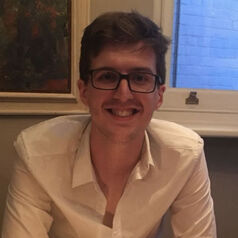
Matthew Priestley
Research Fellow, Department of Mathematics and Statistics, University of Exeter
I am a Research Fellow based at the University of Exeter. My research focusses on high impact weather associated with extratropical cyclones in the mid-latitudes, with a particular focus on Europe. My interests are on understanding historical variability, and also how weather events and associated extremes will change under climate change. I work extensively with those in the insurance/risk sector and provide research and tools for quantifying weather and climate extremes.
Less ![]()


Matthew Rees
Postdoctoral Research Fellow, CSIRO
I am a wildlife ecologist researching how to effectively conserve nature and manage pest species. My research generally centres around estimating where animals occur and how many there are, as well as uncovering species interactions and measuring outcomes of ecosystem interventions.
Less ![]()
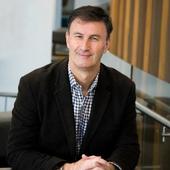

Matthew Robison
Assistant Professor of Psychology, University of Texas at Arlington
Dr. Robison's research examines some fundamental questions regarding the human cognitive system. He focuses largely on two core cognitive abilities: attention control and working memory. More specifically, his research tries to understand why people differ in these cognitive abilities. Why is it difficult for people to sustain and control their attention? How do our attention and memory systems interact to give rise to complex cognitive processes? He is particularly interested in determining what psychological and neural mechanisms that drive individual differences in cognitive ability. To answer these questions, he uses a combination of experimentation, psychophysiological measurement (e.g., EEG, pupillometry), and individual differences methods (e.g., factor analysis, linear mixed modeling, structural equation modeling).
Less ![]()
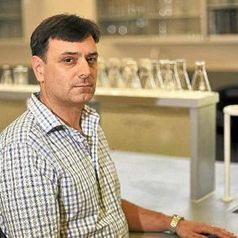
Matthew Rockloff
Head, Experimental Gambling Research Lab, CQUniversity Australia
Prof. Matthew Rockloff received a Ph.D. in psychology from Florida Atlantic University in 1999. Dr Rockloff is Head of the Experimental Gambling Research Laboratory at CQUniversity. Dr. Rockloff has been honoured as a Jack Walker Scholar and twice as an Aurel B. Newell Fellow. Dr Rockloff was named in the Top 10 Unijobs Lecturer of the Year Awards in 2012, 2013 and 2014.
Less ![]()

Matthew Ryan2
Postdoctoral CERC Fellow, CSIRO
Dr Matt Ryan is a researcher in mathematics and statistics working across a broad range of applications. Matt has explored research in Pure Mathematics, Statistics, and Applied Mathematics, and completed his PhD investigating novel statistical and predictive methods of analysing functional brain imaging data. Currently, Matt is investigating the interface of behavioural science and epidemiological modelling to understand the affects of realistic human behaviour on the spread of an infectious disease.
Less ![]()

Matthew Scotch
Associate Dean of Research and Professor of Biomedical Informatics, College of Health Solutions, Arizona State University
Matthew Scotch is Visiting Professorial Fellow at the Kirby Institute at UNSW. He is also Interim Assistant Dean of Research and Professor of Biomedical Informatics in the College of Health Solutions at Arizona State University (ASU), and Assistant Director of the Biodesign Center for Environmental Health Engineering. His research focuses on genomic epidemiology and bioinformatics of RNA viruses with a particular interest in influenza A viruses. Current projects include studying approaches to advance genomic epidemiology by enrichment of virus sequence metadata (funding: NIH/NIAID 1R01AI164481-01A1) and analysis of viruses from wastewater using bioinformatics (funding: NIH/NLM U01LM013129). The latter is partially funded by the NIH RADx-rad initiative.
His lab group is also interested in the molecular epidemiology of viruses including the amplification and sequencing of influenza A and B viruses for short and long-read high-throughput sequencing (HTS) and public health surveillance.
Less ![]()
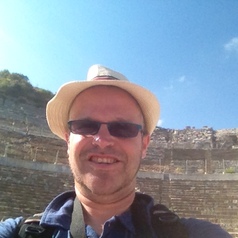
Matthew Sharpe
Matt Sharpe teaches philosophy at Deakin. He works on classical philosophy, rhetoric, and the history of ideas.
Less ![]()
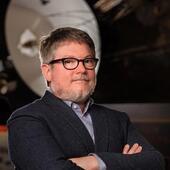
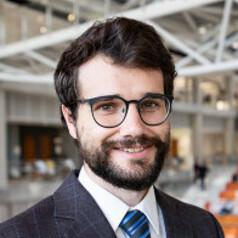
Matthew Skiles
PhD Student in Mechanical Engineering, The University of Texas at Austin
As an NSF Graduate Research Fellow, Matt has conducted systems analysis research as it relates to power grid operations and sustainability. Currently, he is focused on assessing the role of energy efficiency and demand response in increasing power grid resiliency during extreme weather events. As part of this research, Matt characterizes electricity demand profiles using the ResStock building energy model developed by NREL. He uses the ResStock model to generate building stock that is statistically representative of current residential housing and apply efficiency retrofits and equipment upgrades to investigate different development scenarios. He has also focused on investigating the impact that weather conditions have on electricity demand for historical severe weather events and future climate change scenarios.
Before joining The University of Texas at Austin, Matt earned a B.S. in civil engineering from the University of Wisconsin where he worked for several organizations conducting research to inform environmental and energy policy-making processes. After graduating, he worked as an engineer in the energy services industry implementing energy optimization projects at commercial and industrial facilities.
Less ![]()

Matthew Steggle
Professor of Early Modern English Literature, University of Bristol
D.Phil., PGCLT
Less ![]()

Matthew Stewart
Postdoctoral Researcher, Harvard University
Matthew is a postdoctoral fellow at Harvard University in the Edge Computing Lab. His main area of research focuses on the development of embedded machine learning (aka. TinyML), machine learning sensors, and lifetime-aware system design. He also manages multiple projects including silicon photonics, designing and manufacturing flexible microprocessors, large language models for hardware-software co-design, benchmarking tools for robotics and reinforcement learning, and neuromorphic computing.
Less ![]()

Matthew Sturchio
PhD Student in Plant and Ecosystem Ecology, Colorado State University
I am interested in plant physiology, global change ecology, and climate-carbon cycle feedbacks. My PhD research is focused on quantifying how photovoltaic (PV, a.k.a. solar panel) energy expansion might impact ecosystem process and their underlying physiological mechanisms in grasslands.
Less ![]()
- Market Data





















